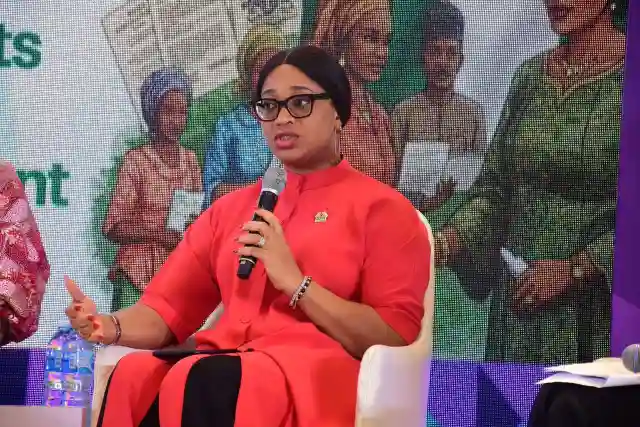Lady Helen Eno Obareki, Co-ordinator of the office of the First Lady of Akwa Ibom State, has called on policymakers and stakeholders to prioritise inclusive and people-centred governance in Nigeria. She made the call during a high-level exclusive session of the Gender and Inclusion Summit 2025 (GS-25) for First Ladies in Abuja. The summit had the theme “From Policy to Practice: First Ladies as Catalysts for Norm Change and Economic Empowerment.”
Speaking at the event, Lady Obareki stressed that policy innovation must go beyond frameworks to directly address the challenges and realities faced by citizens, especially women and young people. According to her, gender equity is not only a justice issue but also a tested pathway to sustainable economic growth.
“Policy innovation is not just about crafting new ideas on paper; it is about creating solutions that impact families, businesses and communities in real time,” she said. “When women and youths are deliberately included in decision-making, the results go beyond empowerment—they drive progress for the entire nation.”
Lady Obareki also declared her full support for the Reserved Seats for Women Bill in Nigeria. The bill proposes the creation of additional seats in the National and State Houses of Assembly to increase women’s representation in leadership. She noted that women bring unique perspectives and experiences that enrich policymaking and strengthen inclusivity.
“As First Ladies, we are pushing and advocating for special seats for women. For me, as a young woman, it is important to note that these reserved seats for women’s advocacy should not be seen as asking for a favour, because with the percentage of women being so low at 5%, what we’re asking for pushes up to about 20% which is still a very low number when you think about it. I am a big advocate for this cause as a young woman, because it provides hope for the Girl Child,” she stated.
She commended the Policy Innovation Centre for creating a platform that allows robust dialogue among stakeholders, urging government officials, civil society leaders, academics, private sector representatives, youth and women groups to ensure that resolutions from the conference translate into practical results.
“Conferences like this allow us to think boldly, but the true measure of success is in the implementation. Nigeria’s future depends on our collective commitment to policies that are equitable, innovative, and impactful,” she added.
Highlighting her vision for Akwa Ibom, Lady Obareki said she looked forward to a future where girls are confident, academically excellent, economically independent, and have equal access to opportunities. She added that her dream is for a society where the girl child is not hindered by period poverty and where their voices are respected.
“I envisage a future where our daughters are not burdened by period poverty, where every Girl is supported and groomed to realise that their voices are heard and there is no glass ceiling that they cannot break. The Girl Child is powerful, and I want our young girls to understand that we are there for them and that there are laws that we support, advocate for, and will implement. Whenever the Girl Child is violated or abused in any way, we stand for them, speak for them, and if it means someone getting jailed over a crime, then we make sure that we get the full weight of the law applied,” she said.
Lady Obareki expressed gratitude to the First Lady of Nigeria and National Chairperson of the Renewed Hope Initiative, Senator Oluremi Tinubu, for her role in supporting sustainable period poverty campaigns, particularly through the supply of sanitary pads to all states in Nigeria to keep girls in school, especially in rural communities. She also praised the Governor of Akwa Ibom State, Pastor Umo Eno, for his economic blueprint, the ARISE Agenda, which she said has provided an enabling environment for women and girls to succeed.
During the session, which also had the First Ladies of Ogun and Imo States and a representative of the First Lady of Cross River State in attendance, Lady Obareki revealed plans to train 1000 girls. She noted that the approach will shift from temporary charity to long-term empowerment programmes designed to create lasting impact.
Her contributions at the summit reinforced the importance of inclusive governance, policy innovation, and the role of women leaders in shaping a sustainable and equitable future for Nigeria.

